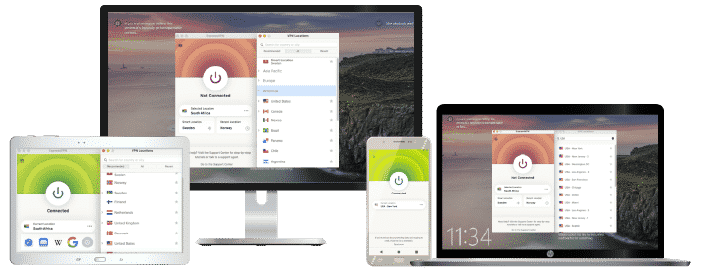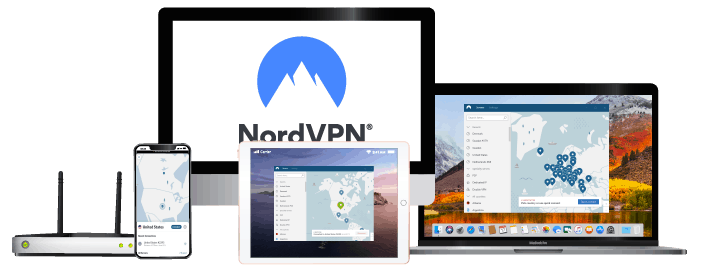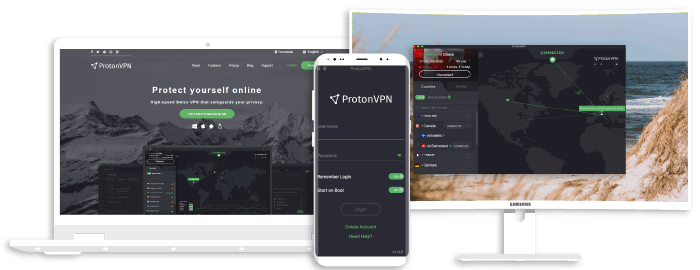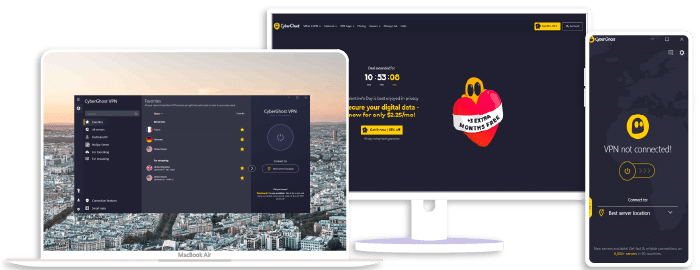How to Use VPN on Android
Wherever I go, my android device finds its way with me. With the rise in cyber threats, I’ve recognized the importance of keeping my private data safe. What better tool to use for online security enhancement than a VPN? Enabling a Virtual Private Network (VPN) on my Android device ensures I surf the web without risking my privacy. It’s a tool well-equipped to shield my device from lurking cyber threats while providing me the luxury to browse the internet without location restrictions.
Among the array of VPNs available on the market, I’ve found ExpressVPN, NordVPN, and Surfshark to significantly up the ante in enhancing Android security. Each of these offers a plethora of security features, robust speeds, and a vast array of worldwide servers.
Being an avid Android user, I’ve discovered how to make the most out of these top-notch VPN services. Here’s the lowdown on the steps and tips needed to set up and utilize a VPN, specifically on an Android device.
ExpressVPN
Overall score: 9.8
- 3,200 servers across 105 countries
- Works with streaming platforms
- AES 256-bit encryption
- Supports private protocol, Lightway
- Money-back guarantee
30-day money-back guarantee
NordVPN
Overall score: 9.6
- 8,700+ servers available in 129 countries
- Connect up to 10 devices simultaneously
- Great security features
- Verified no-logs policy
- Unblocks streaming platforms
30-day money-back guarantee
Surfshark
Overall score: 9.5
- 4,500+ servers in 100+ countries
- Allows unlimited simultaneous connections
- Integrates stealth mode
- Multihop feature available
- Webcam protection from unauthorized apps
30-day money-back guarantee
Proton VPN
Overall score: 9.4
- 17,250+ servers in 125 countries
- Free version available
- Strong security features
- Reliable no-logs policy
- Allows Perfect Forward Secrecy
30-Day Money-Back Guarantee
CyberGhost
Overall score: 9
- 9,300+ reliable servers in 100 countries
- 45-day money-back guarantee
- Strict no-log policy
- Tough security features
45-Day Money-Back Guarantee
Understanding the Basics of VPNs
Before we get into the nitty-gritty of using a Virtual Private Network (VPN) on our Android devices, it’s crucial to grasp VPN basics. A VPN is a private network from a public internet connection. Privacy is fortified as it masks our internet protocol (IP) address, rendering online actions virtually untraceable.
Now, one might ask, ‘Why do I need such a thing on my Android?’ Well, VPNs have become a necessity in this era, especially if you’re using public Wi-Fi. With a VPN, I enhance my online privacy, protect my sensitive data, and access region-restricted websites.
A handful of VPN service providers cater to Android users. ExpressVPN, NordVPN, and Surfshark are among the top choices. All three provide secure, encrypted tunnels for online traffic to flow. No one, not even your Internet Service Provider (ISP), can peek into these tunnels.
With ExpressVPN, you get a nice blend of speed, security, and simplicity. You might find it slightly more expensive, but you’re paying for top-notch quality.
NordVPN, on the other hand, offers cybersec technology that blocks suspicious websites and ensures ad-free browsing. With its double VPN feature, your traffic gets encrypted not once but twice.
Lastly, Surfshark is an affordable option, with a clean web feature that blocks malware, phishing, and ads. Despite its lower cost, Surfshark doesn’t cut corners on security or speed.
- ExpressVPN: Speed, security, simplicity
- NordVPN: CyberSec Technology, double VPN
- Surfshark: Affordable, clean web feature
All you need is to install the VPN app, log in, connect to a server, and voila, you browse the internet under a cloak of privacy! Yet, it’s important to know your specific requirements before selecting a service. Which features are on your priority list? Is it speed, total number of servers, or price? Make sure you choose wisely. On the surface, all VPNs might seem the same, but delve a little deeper, and you’ll see various options catering to different needs. In the next sections, I’ll walk you through how to use these services. Stay tuned!
Step-by-Step Guide: Setting Up a VPN on Your Android Device
To make your android device more secure, setting up a VPN is a smart move. Here’s a clear step-by-step guide that will show you how to get things rolling.
First, I’ll need you to choose a VPN service. Not all services are created equal, so you’ll want to select one that offers a lot! VPNs like ExpressVPN, NordVPN, and Surfshark are all excellent picks. They prioritize your privacy first with their robust encryption algorithms and secure server networks.
Download and install your VPN app from the Google Play Store. I’ll use ExpressVPN for this guide. They’ve got a clean, user-friendly app that simplifies the whole process. Just hit ‘Install’ and wait for the magic to happen.
Next, open the app and sign in. If you’re a new ExpressVPN user, sign up by entering your email and payment information. Newbie tip: don’t be alarmed about the payment part—it’s a standard procedure. Your privacy is worth every cent!
Once you’re in, select a VPN location. This mimics as if you’re browsing from that place. Be it for accessing geographically limited content or simply a privacy move, rest assured, NordVPN and Surfshark also let you select from a wide range of locations.
Lastly, remember to turn on the VPN. On your ExpressVPN app, all you need to do is press the large power button in the center. Viola, you’re connected! Now, your web activity will be masked, protecting you and your data from prying eyes.
Doesn’t it feel empowering to take control of your internet security like this? It could seem a bit technical initially. But as you can see, it’s straightforward. Follow these steps, and you’ll have your VPN up and running on your Android in no time.
Remember, ExpressVPN, NordVPN, and Surfshark not only protect your privacy but also enhance your overall internet experience.
Now, let’s move on to the final section.
Conclusion: Safeguarding Your Online Privacy on Android with VPNs
I’ve explored the ins and outs of using VPNs on Android in this guide. And it’s clear that a robust VPN is your ticket to online freedom and control. These services are essential if you are looking to enhance your privacy, access geo-blocked content, or simply enjoy a far superior browsing experience.
Having a VPN such as ExpressVPN, NordVPN, or Surfshark at your side changes everything. Boy, you’re in for a journey. All three are solid, reputable choices that pack potent privacy-boosting features. They’re specifically designed for Android, streamlined, and easy to use. Undeniably, it’s about finding what fits your personal needs and exploring from there.
Let’s add bullet points to sum it all up:
- ExpressVPN provides raw speed and proven trustworthiness.
- NordVPN’s double encryption system offers rock-solid security.
- Surfshark is your go-to for fuss-free, budget-friendly VPN services.
Remember, setting up a VPN on your Android device is a simple task. Start by installing the VPN app and accepting the requested permissions. Then, choose your server location and hit the connect button. Voilà! You’re all set.
There’s no single answer when it comes to choosing the right VPN. However, as I said before, ExpressVPN, NordVPN, and Surfshark are excellent starting points. From unrestricted global access to complete data security – using these VPNs can only enhance your Android experience.
Saving the best for last, your online privacy is paramount, and it’s within your control. A reliable VPN is one of the most effective ways to secure it. After all, can anything outweigh the peace of mind that comes from knowing you’re safely tucked away from prying eyes?
I’ve shared my knowledge. Now it’s your turn – buckle up and launch into the vast, stretchy world of online privacy with your Android device! Remember – you’ve got the power.
Join the TechRobot Newsletter
Actionable tips on online security, the best VPNs, unblocking guides, and special offers — straight to your inbox.









